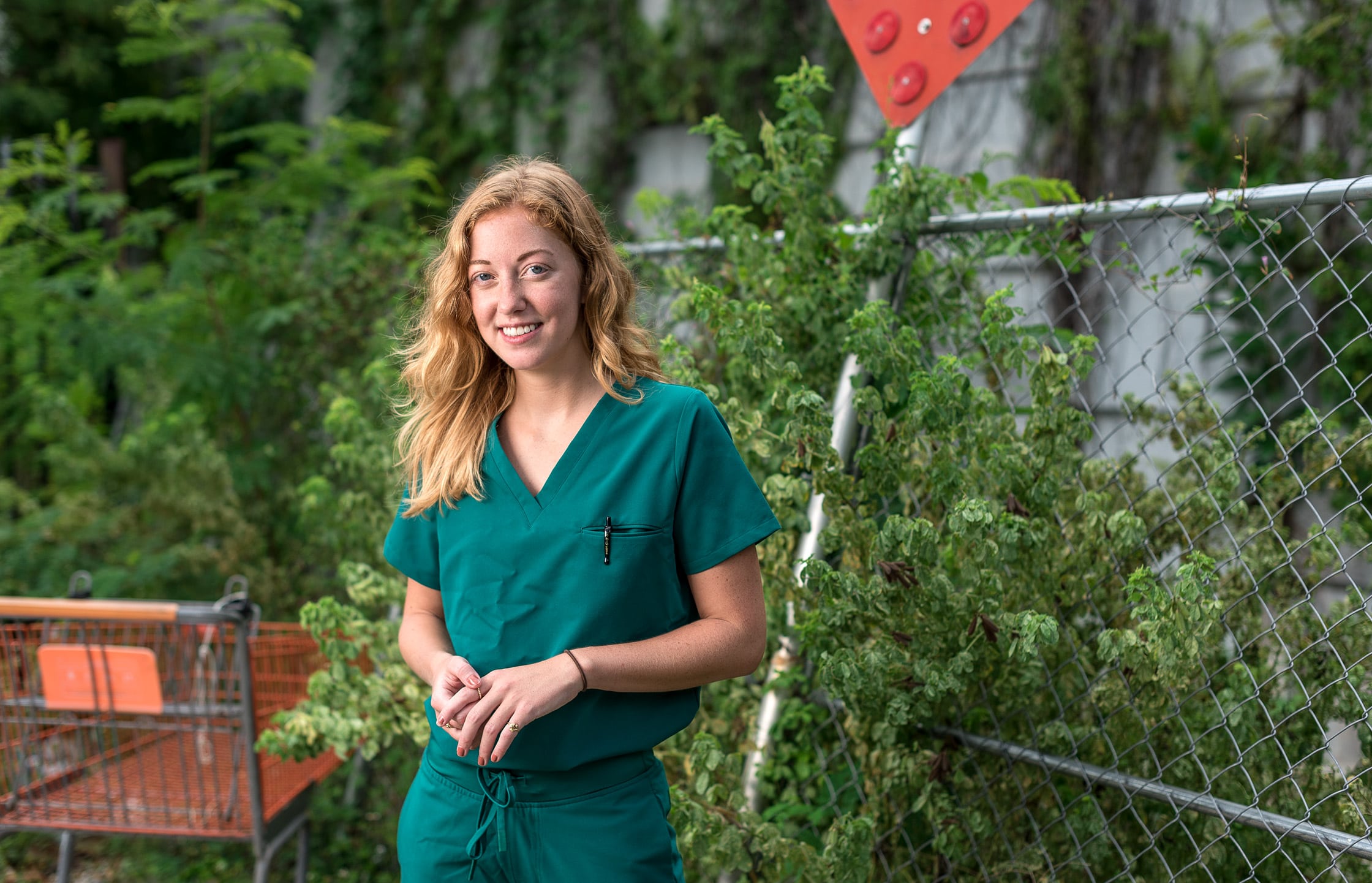Help for the Homeless

Photograph by Tom Salyer
S
ick and forgotten, a woman experiencing homelessness sat at a bus stop in downtown Miami. That image stayed with Sabrina Hennecke, a third-year M.D./M.P.H. candidate, to the point that she wrote an impassioned op-ed piece that was published in the Miami Herald on July 19, speaking to the health care plight of the homeless. She is a founding leader of a student-run organization called Miami Street Medicine, and it has become her cause.
Other than the woman herself, what inspired your op-ed piece?
As head of advocacy, I was looking for important issues to call attention to, and it felt like this idea fell out of the sky and into my lap. After several phone calls and a good deal of background research, I sat down to that empty Word document, and the piece flowed out of me in a day, as if it weren’t mine to begin with. We were thrilled to see how many people care deeply about the homelessness crisis.
How long has the issue of homelessness been important to you?
The bulk of my work in early medical school and prior was with non-profits and largely centered around neglected issues and populations outside of the U.S., such as snakebite envenoming in East Africa, access to medical care in South America, or human rights issues facing asylum seekers. In hindsight, I have always been working on the issue of homelessness, as all of these issues are intricately linked, deeply and disproportionately impacting unsheltered individuals.
How does Miami Street Medicine fit in?
We came together in a dusty library basement as a group of about 10 first-year medical students. When I look back, I can’t believe how far we’ve come. Our primary focus is developing our baseline program — addressing the immediate and unique needs of the patients we encounter on the weekly street runs, ensuring that we provide quality and ethical care. Our advocacy work will never end, but our hope is to continue bringing attention to the issue in a way that will invigorate people in the community and in power to take real action.
— Chuck Carlson![]()


